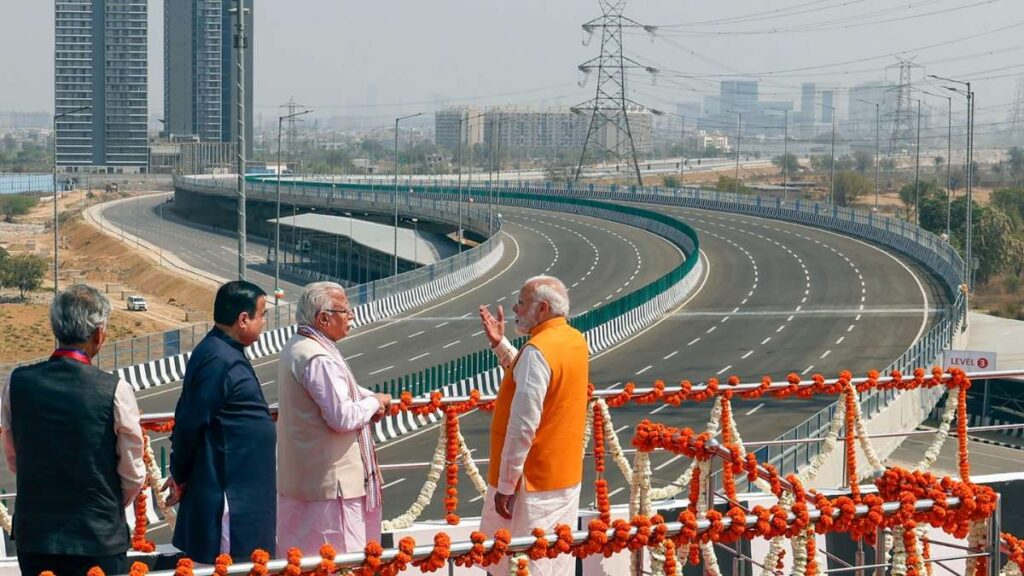Prime Minister Narendra Modi has praised the Union Cabinet’s approval of eight high-speed road corridor projects, describing it as a significant enhancement to India’s infrastructure.
On Friday, the Union Cabinet approved eight major National High-Speed Road Corridor Projects totaling 936 km and costing Rs 50,655 crore. The initiative aims to improve logistics efficiency and connectivity across the country.
In a statement on X (formerly Twitter), PM Modi lauded the approval as a “transformative boost” to India’s infrastructure. He emphasised that the projects will have a “multiplier effect” on economic growth and create substantial employment opportunities.
The Narendra Modi government has greenlit eight significant National High-Speed Road Corridor Projects, spanning 936 km, with a total investment of Rs. 50,655 crore. This move aims to boost logistics efficiency, reduce congestion, and enhance connectivity across India. “Cabinet today approved 8 important National High-Speed Road Corridor Projects of length 936 km at a total cost of over Rs 50,000 crore to improve logistics efficiency, reduce congestion and enhance connectivity across the country,” Union minister Ashwini Vaishnaw said.
The projects include:
- Six-lane Agra-Gwalior National High-Speed Corridor
- Four-lane Kharagpur-Moregram National High-Speed Corridor
- Six-lane Tharad-Deesa-Mehsana-Ahmedabad National High-Speed Corridor
- Four-lane Ayodhya Ring Road
- Five-lane section between Pathalgaon and Gumla on the Raipur-Ranchi National High-Speed Corridor
- Six-lane Kanpur Ring Road
- Four-lane Northern Guwahati Bypass and Widening/Improvement of Existing Guwahati Bypass
- Eight-lane elevated Nashik Phata-Khed Corridor near Pune
Vaishnaw highlighted the mandate given to PM Modi by 140 crore Indians, leading to a historic third consecutive term in power. He emphasized that the approved projects are part of a broader strategy to invest Rs. 76,000 crore in Vadhavan Port and other infrastructure initiatives.
The government noted, “Infrastructure development is the foundation for a country’s economic prosperity and is critical for improving the quality of life of its citizens. Every rupee spent on infrastructure development has a multiplier effect of about 2.5-3.0 times on GDP.”
Total capital investment in National Highways, including private investment, has surged from Rs. 50,000 crore in 2013-14 to approximately Rs. 3.1 lakh crore in 2023-24. The government has shifted from a project-based development approach to a corridor-based strategy, focusing on consistent standards, user convenience, and logistics efficiency



